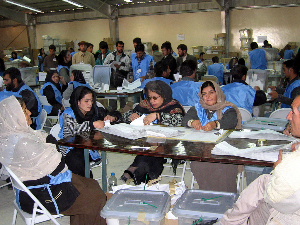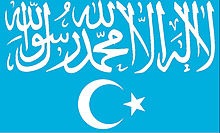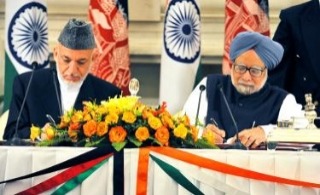Afghanistan National Elections Exceed Expectations
By Richard Weitz (05/07/2014 issue of the CACI Analyst)
Compared with the disastrous 2009 national elections and this year’s pre-ballot worries, the first round of voting in Afghanistan’s presidential elections went much better than forecast or feared. Turnout so exceeded expectations that many localities lacked sufficient ballots on hand, while the Taliban was unable to conduct any spoiling attacks even in its traditional strongholds. Nonetheless, several key uncertainties remain unresolved that will determine the success of what should still be Afghanistan’s first peaceful presidential transition in its history.

“CACI Analyst, February 05, 2014”
Turkistan Islamic Party Increases Its Media Profile
By Jacob Zenn (the 05/02/2014 issue of the CACI Analyst)
One of the main objectives of terrorist and other non-state militant groups, especially those which are significantly weaker than the states they oppose, is to win the narrative. The Turkistan Islamic Party (TIP), an Uighur-led and Pakistan-based militant group, in its own words seeks to “liberate East Turkistan [Xinjiang] from its Communist oppressors.” Although the TIP has carried out few attacks in China, it is a frequent contributor of anti-Chinese and anti-American propaganda to al-Qaeda online forums. The TIP’s praise of several high-profile attacks by Uyghurs in China in 2013 has placed the TIP in greater spotlight than ever before in its role as a mouthpiece for the Uighur militant cause.

“CACI Analyst, January 22, 2014”
Afghanistan and India Deepen Strategic Cooperation
By Richard Weitz (the 22/01/2014 issue of the CACI Analyst)
India has made major economic, political, and strategic investments in Afghanistan since the Taliban lost power in 2001. The two countries share an interest in Afghanistan’s postwar reconstruction, pursuing common diplomatic goals, and cooperating against mutual security threats. For years, India has been undertaking programs to bolster Afghanistan’s security capabilities and integrate the country into regional diplomatic and economic structures. Now with the withdrawal of Western combat forces, India is acceding to longstanding Afghan government requests and deepening bilateral security cooperation, despite the risks of provoking a strong and adverse reaction in Islamabad, as well as enlarging their economic collaboration.







 Book S. Frederick Starr and Svante E. Cornell,
Book S. Frederick Starr and Svante E. Cornell,